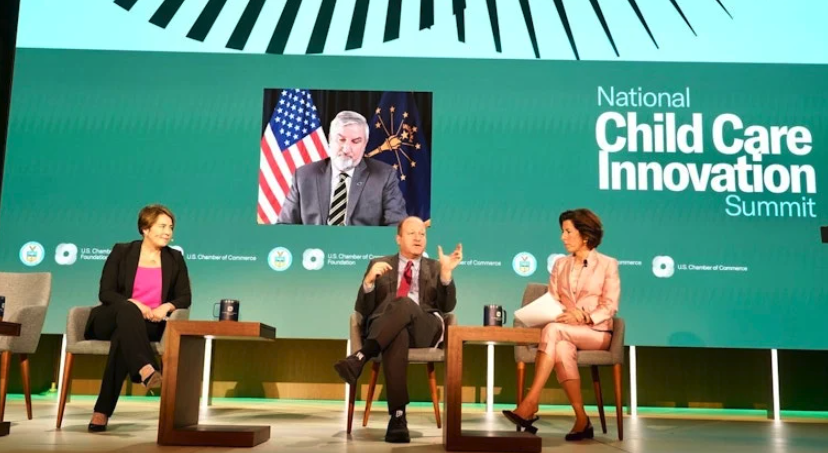Governor Healey And Commerce Secretary Raimondo Rally For Child Care Reform At Innovation Summit
Originally Appeared in Hoodline
By Benjamin Cortez
June 28, 2024
In a united front between government and industry to address the broken child care market, Massachusetts Governor Maura Healey took the podium alongside U.S. Secretary of Commerce Gina Raimondo at the inaugural National Child Care Innovation Summit. The summit, a culmination of efforts by the U.S. Chamber of Commerce and its Foundation, congregated to brainstorm the elevation of child care into the economic mainstream.
"Child care is a critical enabler of the economy, but the child care market is broken," Governor Healey remarked in a statement obtained by Mass.gov News, emphasizing the necessity of substantial, creative initiatives across all of society's tiers, particularly the business sector. Healey also delivered insights into Massachusetts's Gateway to Pre-K agenda, which infuses education sectors with business acumen by ushering in a new specific order tapping industry leaders for advice, is actively exploring new strategies for child care accessibility, including the possibility of tax credits incentivizing corporate child care support.
Massachusetts is pioneering in its approach to bolster the child care workforce, launching five new state-funded Registered Apprenticeship programs, a narrative that Healey shared at the summit. Neighborhood Villages, a Boston-based non-profit, is a testament to this leap forward, boasting graduates equipped with certificates essential for enhancing the capacity of child care services.
Propping up the sector, the Commonwealth has substituted expired federal funds with state dollars, maintaining the lifeline through programs like Commonwealth Cares for Children (C3). According to the Mass.gov release, this financing has played a stalwart role in maintaining over 7,000 child care programs and bolstering a substantial workforce of 42,000 educators. C3 has laid the foundation not only for buttressing current infrastructures but also for astronomical growth in child care slots, the industry workforce, and service quality.
Addressing financial accessibility, Healey's administration seeks to expand child care support to families earning up to 85 percent of the state median income. This profound change embodies the commitment to extend financial aid to a wider bracket of the Massachusetts populace, thus reinforcing the backbone of the state’s early education.
Envisioning a future cementing the principles of equity and access, Healy is spearheading a drive toward universal, high-quality preschool for all four-year-olds in Gateway Cities by 2026, underscoring the belief that investment in early education is investment in the commonwealth’s progeny and, by extension, the commonwealth itself.

